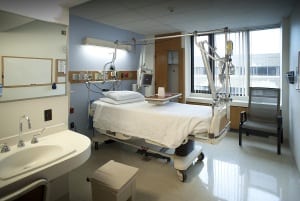Hospital-Acquired Pressure Ulcers (Bedsores)

Families and caregivers should be alert to the possibility of bedsores. Unfortunately, those patients most susceptible to bedsores are often unable to protect themselves so it falls upon families and caregivers to protect them.
If your loved one shows signs of bedsores, report the problem to the facility. If the facility fails to take appropriate measures or if the bedsores are severe, notify the proper outside authorities.
Bedsores lead to extremely serious medical conditions and far too often end in the death of the patient, so do not delay in taking action. Once you have secured the safety of your loved one, contact an experienced medical malpractice attorney.
Bedsores are Fully Preventable Yet Increasing in Frequency
Pressure sores are a national concern. They are fully preventable yet increasing in frequency with extraordinary costs to patients, families and the healthcare system.Bedsores are considered a national concern. The occurrence of bedsores has many extremely serious consequences to the patient, the family and the healthcare system.
Despite the fact that pressure ulcers are entirely preventable, the incidence rate has risen dramatically over the last few decades. It is reported by the National Institute of Health that the incidence rate went up by 86.4% from 1993 to 2006.
The preventability coupled with the rising incidence resulted in the bedsores being classified as never events and also making Medicare’s list of hospital acquired conditions for which there would be no reimbursement.
Consequences of Bedsores/Pressure Ulcers
The occurrence of pressure ulcers in hospital care has significant and severe consequences for patient, families and the healthcare system.
Harm to Patients and Families
In addition to the severe pain to the patient, bedsores lead to a host of serious and sometimes deadly medical complications.
To begin, bedsores of any kind are very painful. More severe bedsores, such as Stage III and Stage IV bedsores are horribly painful and no patient should be forced to endure such pain while in the care of medical professionals who are presumably there to protect patients.
Beyond the pain, bedsores lead to a host of serious and sometimes deadly medical complications. These most commonly involve infections such as sepsis, cellulitis, and bone and joint infections.
Bedsores have even been known to cause cancer. Squamous cell carcinoma can result from chronic or non-healing wounds. Referred to as Marjolin ulcers, these are very aggressive cancers and require immediate surgical intervention.
Consequences to Healthcare System & Taxpayers
The costs are enormous, estimated at $129,248 for each Stage IV hospital-acquired pressure ulcer.Medicare has taken note of the extraordinary and avoidable burden that bedsores place on the healthcare system, including a severe strain on Medicare. Historically, these burdens were simply passed on to taxpayers through Medicare
Medicare no longer allows this for Stage III and Stage IV bedsores. Medicare will no longer reimburse hospitals for additional treatment and medical complications resulting from bedsores.
The costs are considerable. One study estimated the costs at $129,248 for each Stage IV hospital-acquired pressure ulcer. In consideration of the fact that they are fully avoidable, this is absolutely unacceptable no matter what one’s position is on medical malpractice lawsuits.
Severe Bedsores By Definition Suggest Medical Malpractice
The risks, warning signs and preventive measures are clearly established. Occurrence of State III or Stage IV pressure sores strongly suggest medical malpractice.
Bedsores are preventable, plain and simple. There are numerous identified risk factors. These are easily observed and easily monitored by healthcare professionals.
In addition, there are numerous well-established steps that can be taken to prevent bedsores. These are effective and necessary for all patients. They are most essential for those patients at high risk for bedsores.
In short, if your loved one has suffered Stage III or Stage IV bedsores, there is likely the presence of inexcusable neglect in patient care.
Seek Legal Guidance
These cases, like all medical malpractice claims, can be complicated. There are many unique deadlines and other challenges to medical malpractice claims.
The New Mexico Medical Malpractice Act provides a number of protections for certain private doctors and medical providers. In addition, claims against governmental medical providers have short deadlines, some running in as little as 90 days.
It is extremely important that you speak with an attorney experienced with these types of claims and the many challenges and unique deadlines associated with these claims. Missteps can seriously damage or even bar the claims completely.

